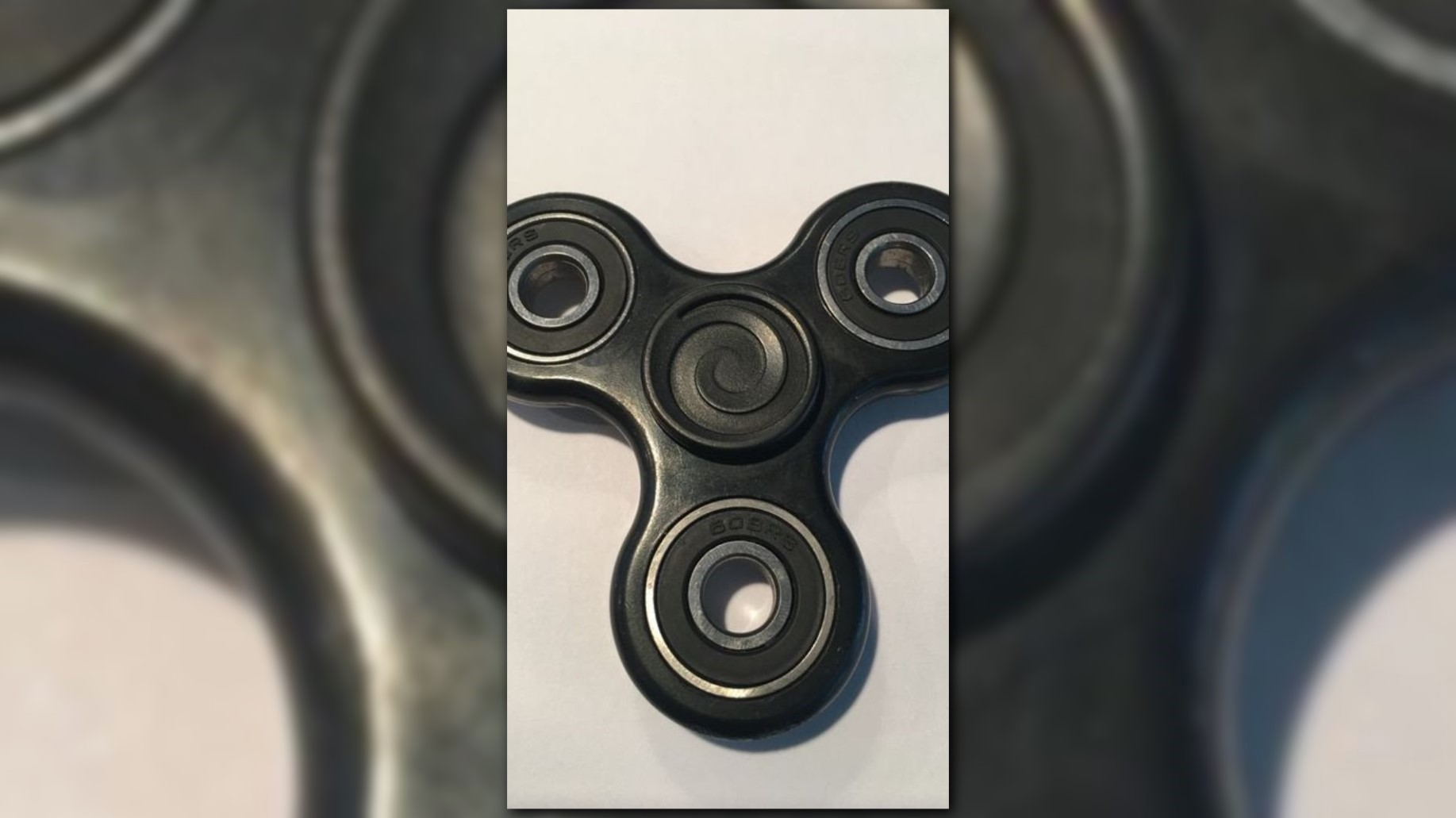SUQUAMISH – Scott McCoskery knows exactly where the fidget spinner craze began: His garage.
He’s adamant: “We are the original,” he said, sitting Thursday morning inside that same garage, now the “world headquarters” for his startup, MD Engineering. A few feet away, employees are assembling the company’s hot products: high-end fidget spinners.
“It’s undisputed, this is my invention,” McCoskery said, twirling one of the company’s Torqbar spinners.
The spinners are ritzy cousins of the cheap, plastic handhelds that have turned into the latest toy fad over the last few months. While McCoskery and his business partner, Paul de Herrera, appreciate the attention the flood of imitators have brought to their business, they see them as mere knockoffs based off their original work.
“Imitation is the highest form of flattery,” de Herrera said with a smile.
MD Engineering’s mass-produced models are made out of brass, copper, stainless steel or titanium and are anything but flimsy. The small rotating platforms are precisely balanced on ball bearings and can spin for more than five minutes, McCoskery said. The only plastic customers will find associated with their Torqbar is in the packaging.
“When you feel it spin and there’s no vibration, it literally feels like it’s floating on your finger,” he said. “We strive for that level of quality in our product and don’t want to compromise. We laugh at these knockoffs that wobble and are made poorly. That’s not what we’re trying to do.”
The company’s quality comes at a price. The cheapest, base-level Torqbar can be had for $130. “Semi-custom” colored models start at $250.
McCoskery originally launched the business by selling customized devices. The company is working through its long list of those requests but recently stopped taking custom orders to switch its focus over to spinners that can be produced faster, to keep up with customers’ rabid demand.
MD Engineering has sold “many thousands” of spinners since McCoskery sold his first in 2015. In its first presale in 2016, the company’s website groaned under the weight of heavy demand, crashing five times in its first 45 minutes. A few minutes after launching, they had sold more than 1,000 pieces, de Herrera said. The company was off and spinning.
Now that they’re established in the world of spinners, the two businessmen face new challenges, mostly in defending their work from knockoff, clone websites. They have a spinner patent working its way through the U.S. Patent and Trademark Office, but until it’s approved, there’s not much the company can do to protect its intellectual property, McCoskery said.
The two are also a little annoyed that a Florida woman has been credited with creating the first fidget spinner. Catherine Hettinger’s device — which looks like the top half of a flying saucer — has to be balanced on top of a finger and can’t change directions easily like their spinner, they note. They’re clear: Hers is a different invention. Theirs is the original spinner.
Today MD Engineering is still based out of that Suquamish garage. As business has grown, the company has taken over most of the space. Employees chat while working at a bench constructed over an old pool table. Dogs wander in and out of the shop. A disco ball hangs from the ceiling.
“It used to just be storage, like anybody else’s garage,” McCoskery said. The space will work until the company needs to expand, McCoskery said, which might not be far off. They’ve begun to sell accessories and have other products in mind.
Because of their quality, McCoskery and de Herrera believe their products will be around long after their plastic counterparts join pet rocks, Tamagotchis and Beanie Babies in toy history.
“We believe that we’re not part of the fad,” McCoskery said. “We’re part of the permanent story of spinners."


